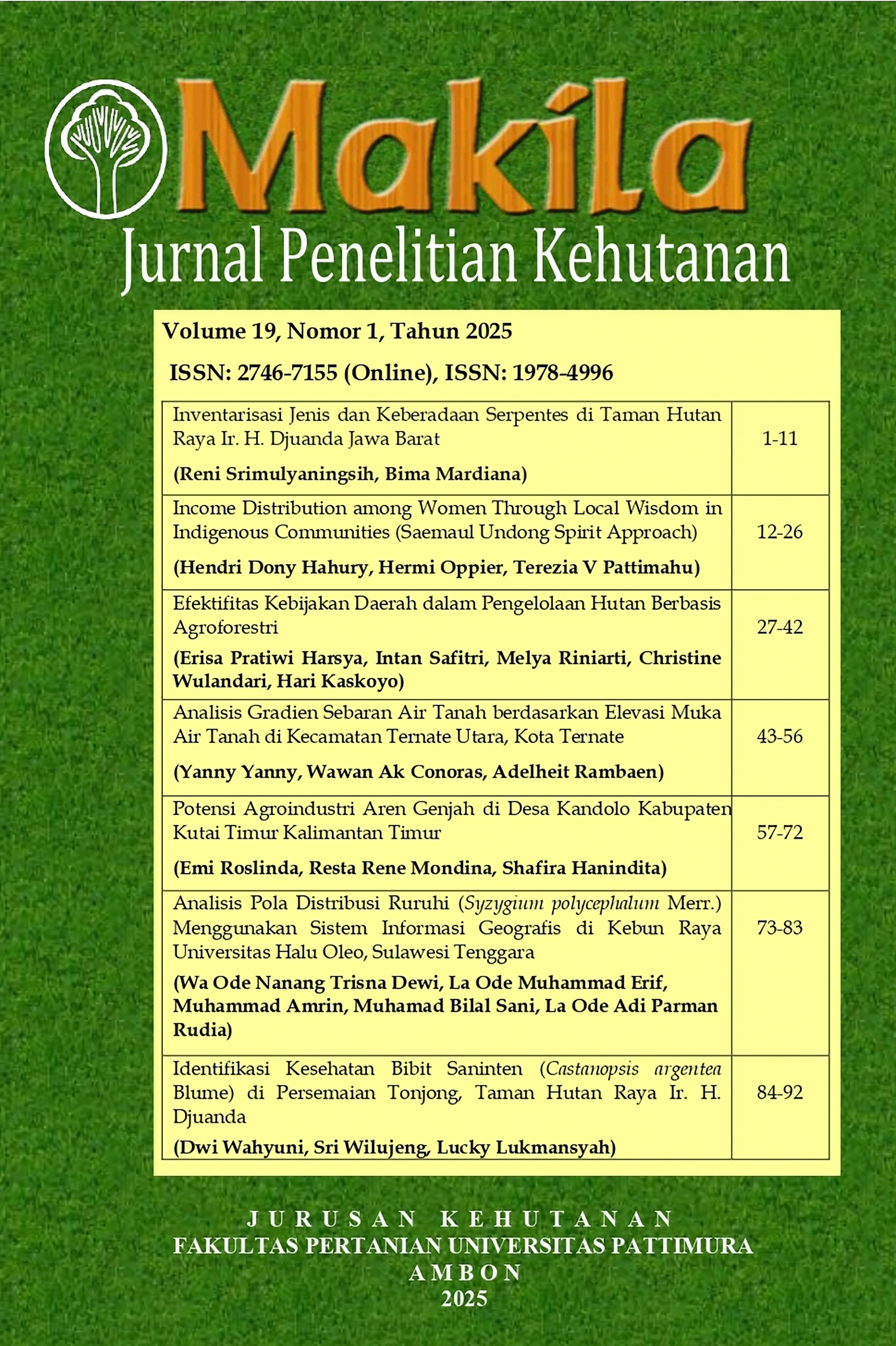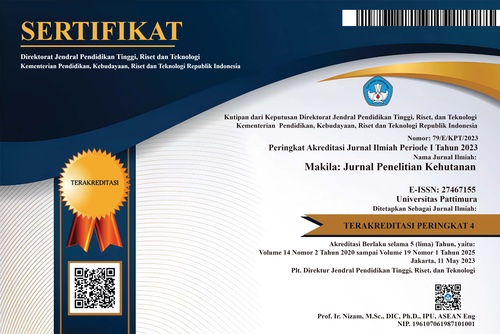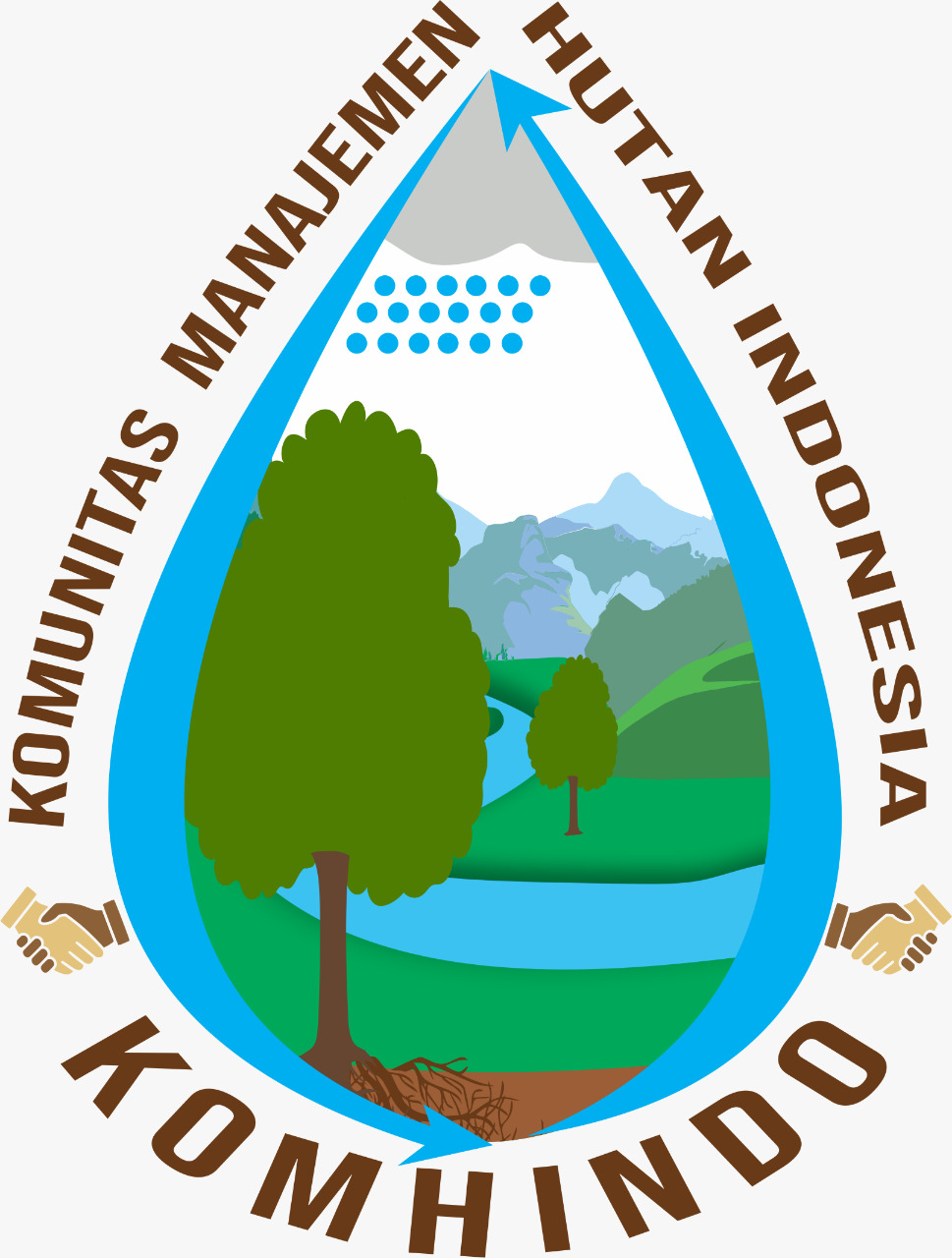REDD+ Sebagai kerangka Pembangunan Berkelanjutan Indonesia: Program dan dampak Implementasi di Tingkat Nasional (2010–2021)
Abstract
REDD+ (Reducing Emissions from Deforestation and Forest Degradation) is a global mechanism established under the United Nations Framework Convention on Climate Change (UNFCCC) to reduce greenhouse gas emissions by curbing deforestation and forest degradation. Conceptually, REDD+ operates as a results-based mechanism whereby participating countries must demonstrate verified emission reductions to receive performance-based incentives. In addition to emission reduction, REDD+ encompasses forest conservation, sustainable forest management, and the enhancement of forest carbon stocks. As one of the countries with the largest tropical forest areas in the world, Indonesia faces significant challenges in the forestry sector, which remains a major contributor to national greenhouse gas emissions and a critical driver of climate change. REDD+ thus emerges as a pivotal strategy for forest conservation and strengthening sustainable forest governance. This study aims to analyze the contribution and impacts of REDD+ implementation in Indonesia. Employing a qualitative descriptive method, the research draws upon various data sources, including academic literature, policy documents, official reports from UNFCCC and REDD+ platforms, and relevant news articles. The analysis is grounded in the Theory of Sustainable Development, which provides a conceptual lens to examine the interplay between environmental, social, and economic dimensions of REDD+ initiatives. Findings reveal that REDD+ implementation in Indonesia has contributed to a measurable reduction in deforestation rates. Beyond environmental benefits, REDD+ programs have also improved local community welfare through incentive-based mechanisms and participatory forest management. Furthermore, the initiative has facilitated access to carbon markets, enhancing climate financing opportunities and supporting Indonesia’s broader commitment to sustainable climate change mitigation.
Downloads
Copyright (c) 2025 Benediktus Edho Prasetyo, Januari Pratama Nurratri Trisnaningtyas

This work is licensed under a Creative Commons Attribution 4.0 International License.











